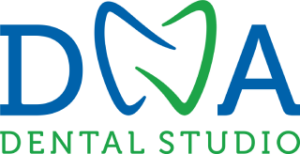Dental health during pregnancy is crucial for both the mother and the developing baby. Hormonal changes can increase the risk of dental issues such as gingivitis, cavities, and periodontitis. Ignoring these difficulties can lead to more severe complications. Dental emergencies during pregnancy, such as severe toothaches, infections, or broken teeth, need immediate attention to prevent further health risks. Prompt treatment ensures the well-being of both the mother and the baby, highlighting the importance of maintaining good oral hygiene and seeking timely dental care.
Understanding Dental Emergencies During Pregnancy
1. Toothache: Often caused by cavities or infections, severe toothaches can disrupt daily life and require prompt treatment.
2. Gum Infections: Hormonal changes can lead to gingivitis, causing swollen, bleeding gums that may escalate to more severe infections.
3. Broken Tooth: Accidents or weakened teeth can result in cracks or breaks, necessitating urgent dental care.
Common Dental Emergencies and Immediate Steps
1. Toothache
A. Causes and Symptoms:
– Causes: Cavities, infections, gum disease, or tooth fractures.
– Symptoms: Persistent, throbbing pain, sensitivity to temperature changes, and swelling.
B. Immediate Steps to Manage Pain at Home:
– Rinse mouth with warm salt water.
– Apply a cold compress on the outside of your cheek.
– Take over-the-counter pain relievers, avoiding aspirin.
– Apply clove oil to the affected area.
C. When to Seek Professional Help:
– If pain persists beyond a day or two.
– Fever or infection-related symptoms.
– Swelling or severe discomfort.
2. Gum Infections and Bleeding
A. Common Causes:
– Pregnancy gingivitis due to hormonal changes.
– Poor oral hygiene leading to plaque buildup.
B. Home Remedies and Care Tips:
– Brushing and flossing softly helps to maintain good dental hygiene.
– Use an antibacterial mouthwash.
– Apply a cold compress for swelling.
C. When to See a Dentist?
– If bleeding is severe or persistent.
– If there is too much swelling or pain.
– Pus or fever are indicators of an infection.
3. Broken or Knocked-Out Tooth
A. First Aid Steps for Handling a Broken Tooth:
– Rinse mouth with warm water.
– Apply gauze to stop bleeding.
– Use a cold compress to reduce swelling.
B. Preserving a Knocked-Out Tooth:
– Handle the tooth by the crown, not its root.
– Rinse gently with water, do not scrub.
– Try to place the tooth back in the socket or store it in milk or saline solution.
C. Urgency of Dental Visit:
– An immediate visit is crucial for the best chance of saving the tooth.
– Seek dental care within 30 minutes for knocked-out teeth.
4. Abscesses and Swelling
A. Signs of an Abscess:
– Severe, persistent pain.
– Swelling and redness in the gums.
– Pus discharge or a pimple-like bump on the gums.
– Fever and swollen lymph nodes.
B. Home Care Tips to Reduce Swelling:
– Rinse with warm salt water multiple times a day.
– Apply a cold compress on your face.
– Avoid hot or cold foods and drinks.
C. Importance of Immediate Dental Attention:
– Abscesses are dangerous illnesses and can spread.
– Prompt treatment is required to avoid problems.
– Antibiotics and professional drainage might be required.
Safe Dental Treatments During Pregnancy
1. Pain Management Options Safe for Pregnant Women
– Acetaminophen (Tylenol): Generally considered safe for managing dental pain during pregnancy.
– Local Anesthetics: Lidocaine is commonly used and considered safe, often administered with minimal vasoconstrictors to reduce systemic absorption.
– Non-Medication Approaches:
– Cold compresses for reducing swelling and numbing pain.
– Warm salt water rinses to soothe sore gums.
2. Safe Medications and Antibiotics During Pregnancy
A. Antibiotics:
– Penicillin and Amoxicillin: Widely used and safe for treating dental infections.
– Cephalosporins: Such as cephalexin, are also considered safe.
– Clindamycin: Often prescribed if there is a penicillin allergy.
B. Medications to Avoid:
– Tetracyclines, as they can affect fetal bone growth and tooth discoloration.
– NSAIDs like ibuprofen, particularly in the third trimester.
X-rays During Pregnancy: Safety Precautions and Alternatives
A. Safety Precautions:
– Dental X-rays are generally safe during pregnancy, particularly when properly shielded. To reduce exposure, use a lead apron and thyroid collar.
– If possible, postpone elective x-rays until after pregnancy.
B. Alternatives and Minimizing Need:
– Detailed visual and physical examination to assess dental issues.
– Use of dental history and symptoms to diagnose problems without immediate X-ray confirmation.
– Digital X-rays, which emit significantly lower levels of radiation compared to traditional X-rays, can be utilized if necessary.
Wrap Up!
Handling dental emergencies during pregnancy promptly is crucial to prevent complications for both mother and baby. Maintaining regular dental care and consulting healthcare providers ensures oral health remains optimal throughout pregnancy. Remember, hormonal changes can impact dental health, making vigilance and timely intervention essential. If you experience any dental emergencies during pregnancy, seek help immediately. For expectant mothers, regular check-ups with your Burbank dentist can help catch issues early. Stay proactive, practice good oral hygiene, and prioritize both your and your baby’s health. Book your appointment with a Burbank dentist today for a healthy smile and a healthy pregnancy!

